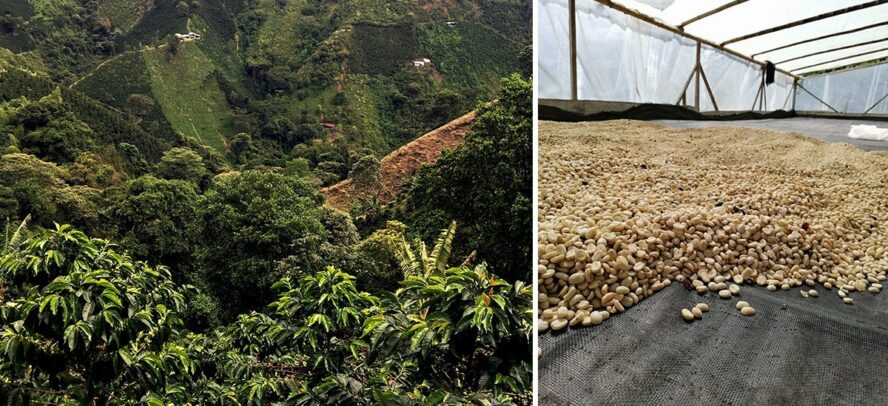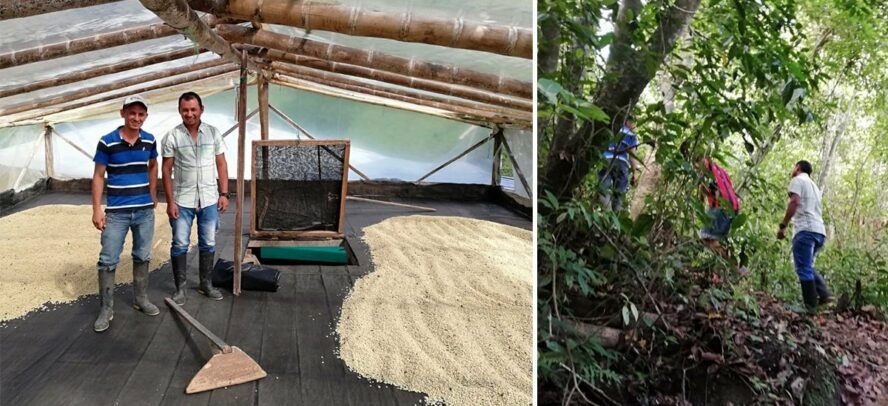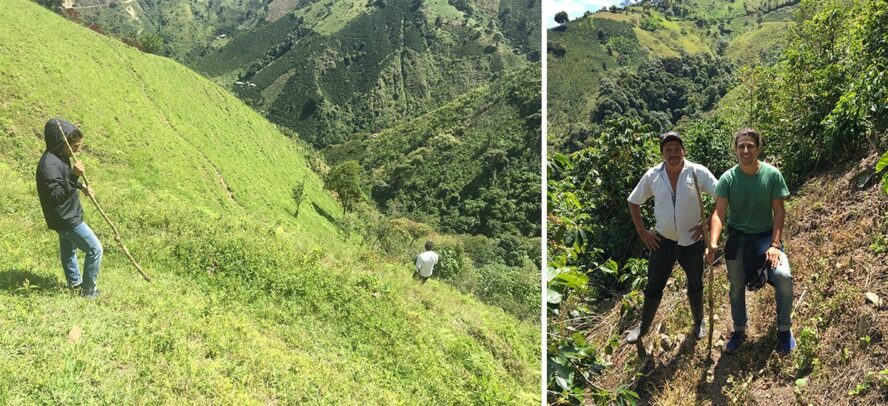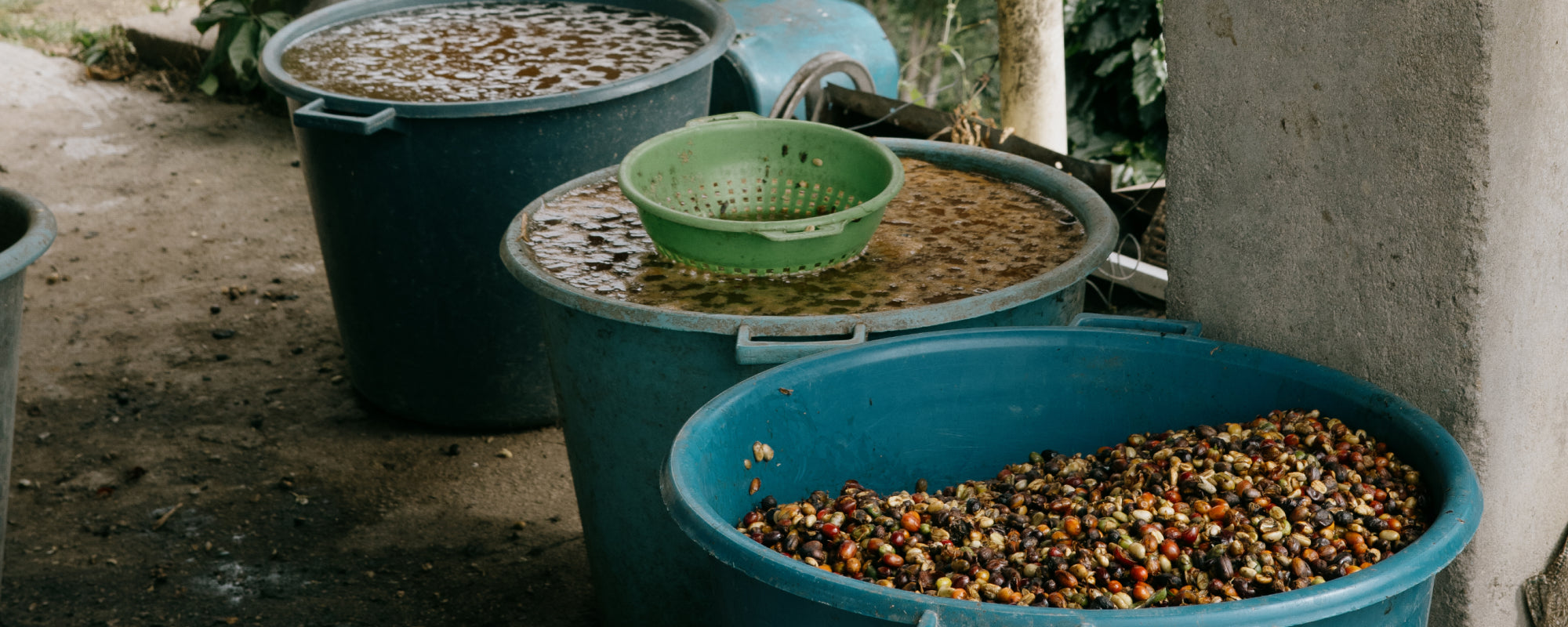The first step of our latest trip to South America took place in Colombia. We arrived in bustling Bogotá to spend the night and departed the following morning for Neiva. There, we met with Rafael, an engineer from the Coocentral cooperative and a person in constant contact with the producers we work with. Our goal was to reach Garzón in about three hours, a drive that winds through trees and fields where vegetation dominates, making you realize you're in a paradise nestled in the Andes Mountains.

When we talk about coffee in Colombia, we're talking about the third-largest coffee producer in the world. Unlike its competitors, "Café de Colombia," the quality certificate with which bags are marked for export, undergoes rigorous quality control. Virtually everything exported under this seal is verified to be washed Arabica. Thus, Colombian coffee's position in the global market is very high thanks to the more than 500,000 families responsible for producing this wonderful product.

Strengthening ties at origin
As part of our direct marketing efforts in Colombia, we include periodic visits to producers at their source. We do this to monitor the improvements implemented on their farms and in their coffee processing practices. This time, we visited a small group of producers in the municipality of Guadalupe with whom we began working last harvest.
The Contreras brothers were the first producers we visited in the Filo Salazar area, a family farm they inherited. José and Andrés Heider have a vision focused on specialty coffee production and have excellent infrastructure for its production. With the intention of going further and satisfying these young men's curiosity, we have supported them with the purchase of several fermentation tanks and some elements to improve the drying of their coffees. Their production focuses on different varieties, primarily Caturra and Castillo, and in the coming years we will be able to try their new Bourbon Rosé and Geisha varieties. We also collaborated on various experiments with fermentation in controlled atmospheres and fermentation with a bed of coffee pulp. We achieved impressive results that will soon be released.

Another example of direct treatment in Colombia
Elver Novoa is the next producer we want to tell you about. Besides being the winner of the 2017 Guadalupe Coffee Award, he has us amazed with his coffees. Finca San Luis is located in the Las Mercedes area at almost 1,900 meters above sea level, and the climb to get there is truly insane. When you reach the top, you realize how incredible the setting is. It's a landscape crowned by hundreds of hills with an almost vertical slope and vegetation that covers everything.
Don Elver's farm is also his home, where he lives with his family. In addition to coffee trees, he also runs a livestock farm, whose numbers are dwindling at the expense of his coffee. The varieties he grows are mainly Bourbon, Colombia, and a dwarf variety that appears to be a primitive, low-growing 'Colombia' variety. His plantation is like a small forest where coffee trees, trees, and other shrubs coexist in the same ecosystem. At the processing plant, there is a pulp mill with a couple of fermentation vats and a new dryer that he installed with part of the profit from the extra payment we made when we purchased his lots the previous year. Don Elver's coffees are processed at his sole discretion, as they have a defined and consistent profile with notes of white chocolate, vanilla, and tropical fruits. A delight!
What's coming
This concludes the first part of our post dedicated to the Huila region as part of our direct marketing efforts in Colombia. Huila is a region we are intensively supporting and where we have seen immediate benefits thanks to the dedication of its producers. We'll be back soon with the stories of two more producers we've been working with this year in the country. Our coffee menu will be expanded with these Colombian lots as the new harvests arrive at our roastery. Stay tuned for more new releases!
